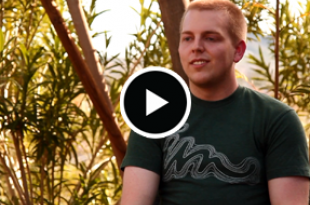by Thomas A. Richards, Ph.D.
Psychologist/Director, The Social Anxiety Institute
Social Anxiety Disorder (social phobia) is the third largest mental health care problem in the world today.
The latest government epidemiological data show social anxiety affects about 7% of the population at any given time. The lifetime prevalence rate (i.e., the chances of developing social anxiety disorder at any time during the lifespan) stands slightly above 13%. (See journal citation on the Social Anxiety Association home page.)
Definition
Social anxiety is the fear of social situations that involve interaction with other people. You could say social anxiety is the fear and anxiety of being negatively judged and evaluated by other people. It is a pervasive disorder and causes anxiety and fear in most all areas of a person's life. It is chronic because it does not go away on its own. Only direct cognitive-behavioral therapy can change the brain, and help people overcome social anxiety.
Perceptions
People with social anxiety are many times seen by others as being shy, quiet, backward, withdrawn, inhibited, unfriendly, nervous, aloof, and disinterested.
Paradoxically, people with social anxiety want to make friends, be included in groups, and be involved and engaged in social interactions. But having social anxiety prevents people from being able to do the things they want to do. Although people with social anxiety want to be friendly, open, and sociable, it is fear (anxiety) that holds them back.
Triggering Symptoms
People with social anxiety usually experience significant distress in the following situations:
- Being introduced to other people
- Being teased or criticized
- Being the center of attention
- Being watched or observed while doing something
- Having to say something in a formal, public situation
- Meeting people in authority ("important people/authority figures")
- Feeling insecure and out of place in social situations ("I don’t know what to say.")
- Embarrassing easily (e.g., blushing, shaking)
- Meeting other peoples’ eyes
- Swallowing, writing, talking, making phone calls if in public
This list is not a complete list of symptoms -- other symptoms may be associated with social anxiety as well.
Emotional Symptoms
The feelings that accompany social anxiety include anxiety, high levels of fear, nervousness, automatic negative emotional cycles, racing heart, blushing, excessive sweating, dry throat and mouth, trembling, and muscle twitches. In severe situations, people can develop a dysmorphia concerning part of their body (usually the face) in which they perceive themselves irrationally and negatively.
Constant, intense anxiety (fear) is the most common symptom.
Insight
People with social anxiety typically know that their anxiety is irrational, is not based on fact, and does not make rational sense. Nevertheless, thoughts and feelings of anxiety persist and are chronic (i.e., show no signs of going away). Appropriate active, structured, cognitive-behavioral therapy is the only solution to this problem. Decades of research have concluded that this type of therapy is the only way to change the neural pathways in the brain permanently. This means that a permanent change is possible for everyone.
Seeking Help
Social anxiety, as well as the other anxiety disorders, can be successfully treated today. In seeking help for this problem, we recommend searching for a specialist -- someone who understands this problem well and knows how to treat it.
Social anxiety treatment must include an
active behavioral therapy group, where members can work on their "anxiety" hierarchies in the group, and later, in real-life situations with other group members.
Therapy (Treatment)
Cognitive-behavioral therapy for social anxiety has been markedly successful. Thousands of research studies now indicate that, after the completion of social anxiety-specific CBT, people with social anxiety disorder are changed. They now live a life that is no longer controlled by fear and anxiety. Appropriate therapy is markedly successful in changing people's thoughts, beliefs, feelings, and behavior. The person with social anxiety disorder must be compliant and do what is necessary to overcome this disorder.
National Institutes of Mental Health-funded studies report a very high success rate using cognitive therapy with a behavioral therapy group. Both are essential to alleviating anxiety symptoms associated with social anxiety disorder.
Medication
Social anxiety medication is useful for many, but not all, people with social anxiety disorder. For social anxiety, research indicates use of the anti-anxiety agents, and (perhaps) certain antidepressants in conjunction with CBT have proven most beneficial. Medication without the use of active, structured cognitive-behavioral therapy has no long-term benefits. Only CBT can change the neural pathway associations in the brain permanently. The therapy used must "fit" the way the human brain is structured.
Current research indicates many antidepressant medications for social anxiety disorder to be useless, even in the short-term. About 15% of our in-person socially-anxious people are helped by antidepressants. Some of the large-scale medication studies for social anxiety have been questioned and found to be skewed in favor of the drugs marketed by the same pharmaceutical companies who paid for these studies to be done in the first place. These kind of studies are conflicts-of-interest, and their conclusions should be thoroughly questioned.
In addition, each person is different, and there is no general rule that works concerning social anxiety and medications. For a typical person with social anxiety, who has an "average" amount of anxiety, along the quantifiable continuum, we have found an anti-anxiety agent to be most effective, if the person has no history of substance abuse. Antidepressants do not work anywhere near as well, in general. A typical superstititon, promoted by the drug companies, is that antidepressants have anti-anxiety properties. This is not true. If anything, many of the antidepressants make a person MORE anxious. However, not all people want or need medication. One of the big changes in the last decade is the gradual non-use of medications by people coming into active therapy for social anxiety. The majority of people in our groups now choose not to use medications and to concentrate solely on CBT.
Nevertheless, it is the combination of cognitive and behavioral therapy that changes the brain and allows you to overcome social anxiety. Medications can only temporarily change brain chemistry and can be useful in some cases. This is very general advice, and you must consult with your psychiatrist when it comes to medications. Try to find someone who understands that anti-anxiety agents are not addictive to people with diagnosable anxiety disorders. In twenty years, we have never had even one patient who has moved up their dosage of an anti-anxiety agent once an adequate baseline is established as being effective. Social anxiety people can be helped by a low dose of an anti-anxiety agents (there is a reason why we prefer a low dose of either lorazepam or clonazepam for this purpose).
THIS ADVICE (above) only applies to people who have a diagnosable (DSM-5: 300.23) case of social anxiety disorder. You cannot generalize this out to other mental health care conditions.
Compliance with Cognitive-Behavioral Therapy
Cognitive-behavioral (rational) therapy is not difficult to do, and has not been seen this way by participants. The first factor in not complying with the therapy is that "I can't remember to do it every day" and "I have a hard time committing to something in which I don't see immediate results". The psychologist or group leader should have time-tested solutions to these irrational arguments.
Prognosis
Prognosis is markedly good. People completing CBT training report a high success rate, compared to control groups. In the National Institute of Mental Health longitudinal studies, people continued to report progress after CBT behavioral group therapy was over. Studies repeatedly indicate that treatment compatibility (i.e., did the person carry out the prescribed therapy?) is the key element in success. Using different terminology, the social anxiety people who understand and follow the directions to be repetitive with the therapy report the most positive changes in lessening anxious feelings and thoughts. Repetition and reinforcement of rational concepts, strategies, and methods (and their implementation) is the key to alleviating social anxiety disorder on a long-term basis.
People can and do overcome social anxiety if they stick with the cognitive strategies and pratically apply them to their lives.
Differential Diagnosis and Comorbidity
Social anxiety disorder is one of the five major anxiety disorders as listed in the DSM-5.
Social anxiety is many times confused with
panic disorder. People with social anxiety do not experience panic attacks (they may experience "anxiety attacks"), in which the principal fear is of having a medical problem (e.g., heart attack). People with social anxiety realize that it is anxiety and fear that they are experiencing. They may say things like "It was awful and I panicked!", but, when questioned, they are talking about feeling highly anxious. They are not talking about the fear of having a medical problem. People with social anxiety do not go to hospital emergency rooms after an anxiety situation. People with panic disorder many times go to hospital emergency rooms, or doctor's offices, at first because they feel there is something physically wrong with them.
High rates of alcoholism and other substance abuse, family difficulties and problems, lack of personal relationships, and difficulty in obtaining and continuing with employment are among the everyday problems experienced by many people with social anxiety disorder.
A Big Problem
Lack of professional and knowledgeable therapists is the biggest and most relevant problem to overcoming social anxiety. While it can be done, and a vast amount of clinical and research evidence supports this, overcoming social anxiety is difficult because of the scarcity of treatment facilities for people with this persistent anxiety disorder.
Often, we are led to the conclusion that effective therapy -- whether from a psychologist or from a non-licensed person -- comes only from people who have experienced this disorder themselves. Twenty years of experience points to the fact that people who have lived with this disorder and overcome it, make the best group leaders.



